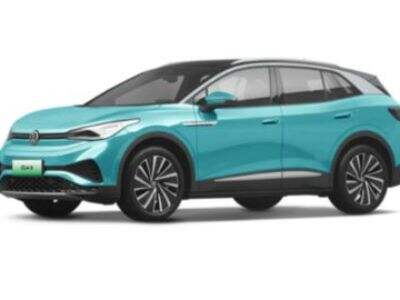Electric automobiles, hybrid cars and hydrogen cars are three kinds of automobile with new energy which are developing rapidly nowadays. DLST Auto is here to walk you through what makes each of these vehicles special, so you can make an informed decision on which is right for you. So what are those different types of vehicles, what are they good for, and how do they give us a clearer path to the future?
A Guide to Electric Vehicles
Electric vehicles, or EVs, run on electricity, not gasoline. They also have a battery to store energy. That energy drives an electric motor, which turns the wheels that drive the car. EVs are silent, green and cheaper to run. You can recharge them at home, with a special charging station, or at public charging stations in cities and towns.
Gasoline-Electric Drive Dual Power Sources
Hybrid vehicles are those that operate using both gasoline and electric power. They have a gasoline engine and an electric motor, and the two units work together to propel the car. Hybrids can move from gasoline to electricity, depending on how you drive them. That allows them to use less fuel and produce less pollution than typical gasoline cars. As with EVs, hybrids can also charge at home or public charging stations.
A Viable Solution for Clean Energy in the Future
Hydrogen vehicles are automobiles that utilize hydrogen gas to power an electric motor. They don’t emit anything else, so the only thing that comes out of them is water vapor. Hydrogen vehicles are in their infancy, yet they offer a potential fit with clean energy. The central problem is there aren’t many places to fill up on hydrogen, yet. But with more fueling stations opened, hydrogen cars could end up being better for the planet.
Understanding the Differences
Now that we’ve covered EVs, hybrids and hydrogen vehicles, let’s take a closer look at how they vary. EVs operate on electricity alone; hybrids run on both gasoline and electric power; hydrogen cars employ hydrogen gas to generate electricity. Each vehicle has its upsides and difficulties, so consider how you drive, what you can afford, and where you can charge or fuel when you pick one.
Choosing a vehicle: What to consider
There are a few things to consider when choosing a new energy vehicle. Think about how much you normally drive a day, whether you have good access to charging or fueling and how much you want to spend on fuel and maintenance. If you typically drive relatively short distances and are able to recharge your car regularly at home, an E.V. might work well for you. If you need a car for long drives, and you want to be friendlier to the environment, a hybrid may work better. If you want a car that doesn’t pollute the air and at the same time you can refill it quickly in person or even at home, then a hydrogen vehicle may be the better option for you.
To sum things up, Plug-in Hybrid Electric Vehicle EVs, plug-in hybrids and hydrogen cars are three new energy cars with much cleaner and excellent performance compared with traditional cars with gasoline. DLST Auto is here to help you differentiate so that you can make an educated decision. Whether it’s an EV, a hybrid or a hydrogen car, hopping into these new energy cars is a stride toward a less pollution-laden future for all.

